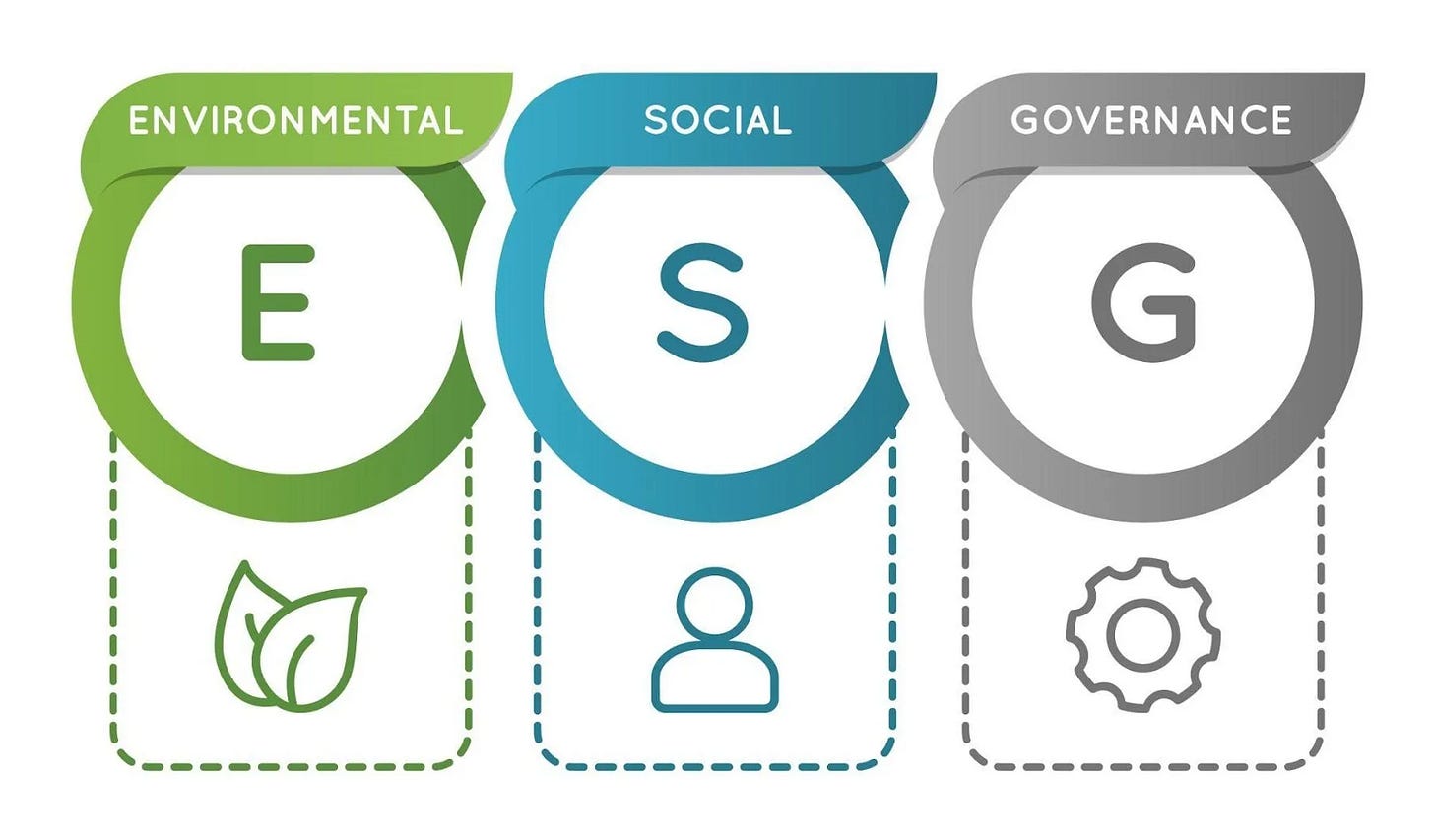What Would Heidegger Say About Digital Technologies and Innovation?
Reflections on Innovation, Technology, and Business Ethics
Introduction
In the introduction to many EU policies concerning digital technology and digital strategy, two main points are established; 1) that a delicate balance between ‘innovation’ and ‘fairness’ is being struck, and 2) questions like 'what is fairness' and 'fairness for whom' are crucial to clear and effective policy development.
This article identifies two assumptions that aren't necessarily guaranteed. Respectively, that the relationship between innovation and fairness is dichotomous, and that innovation is not a term subject to the same speculation as fairness. To question such assumptions, Heidegger's 'The Question Concerning Technology' is introduced as his conception of innovation challenges the current (likely neoliberal) perspective underlying digital regulation and business ethics.
Treating 'Innovation' like 'Fairness'
Investigating the nature of innovation is not an obvious tangent to be made in current policy development. There is an imbalance in inquiries into fairness compared to inquiries into innovation, and this section outlines two competing views of technology and technological innovation in an attempt to introduce and contribute to discussions of technological innovation.
The Instrumental View (Broadly)
The instrumental view aligns with the maxim 'technology is just a tool.' Heidegger claims the instrumental view considers the essence of technology to be solely instrumental, or that its nature is characterised as a mere means to an end. By considering technology to be a mere means, technology itself is conceived as neutral, and its value lies in the process of manipulation and manufacture itself. By considering technological development (innovation) as a value in and of itself, Heidegger claims that it is regarded as its own independent, and inevitable force- that technological progress is something humans ultimately don't have control over, and can only influence by stifling it.
The instrumental view falls into the broader perspective (what he calls ‘standing reserve’) Heidegger considers to have originated in the Enlightenment- that humans are independent of the world and that the world is a resource to be challenged to maximise what it yields.
Heidegger's View (Broadly of course)
Heidegger's view claims that the essence of technology is deeper than mere utility and is certainly not neutral. By tracing the etymology and philosophy of the Greeks, he ultimately concludes that 'instrumentality' is a kind of 'causality' whose ultimate essence lies in the 'realm of revealing truth.' By claiming that technology's essence lies in revealing the truth, Heidegger then expands that the truths revealed provide us with an understanding of what unifies the world.
When Heidegger claims that the essence and value of technology are epistemological, he not only shifts the focus from technology as a means to what it reveals but also incorporates elements of nature and humanity into that revelation. Heidegger's perspective on technology also relates to his rejection of the Enlightenment conception of the relationship between humans and the world. Heidegger claims that humans exist together within the world and must therefore incorporate humanity and nature into our decision-making, viewing the world not as a resource to manipulate but as a source of fundamental truth and unity. ‘Innovation’ under Heidegger's view is not valuable in and of itself, but derives its value from being motivated by, and revealing truths about the world.
Implications on Business Ethics
The instrumental view seems most similar to the current conception of innovation – a conception likely influenced by neoliberalist thinking. Maxims like ‘progress for progress's sake’, ‘technology is just a tool’, and ‘regulation stifles innovation’ can be associated with the neoliberal conception of the market. Broadly speaking neoliberalism considers the market to be a natural, organic phenomenon whose integrity should be left undisturbed as much as possible. By considering the market to have a mind of its own, and by putting faith in its development, a similar attitude would be adopted for technological innovation.
The instrumental conception of technology holds utility as the necessary and sufficient condition for innovation– any benefit towards the environment or human beings is an extra bonus. Under the ‘standing reserve’ the path of innovation is not sensitive to the well-being of others or the world, as businesses and developments are not obliged in any way to consider public interests. This neoliberal conception renders the question ‘innovation for whom’ and considerations of environmental, equitable, or intergenerational concerns more difficult to pose, and more excessive to demand innovators be able to answer.
By adopting Heidegger’s perspective on technology, innovation is considered as inherently sensitive to the above-mentioned concerns as its essence exists in the realm of unification. Heidegger’s conditions for innovation change, and his departure from neoliberal conceptions of the nature of the market, imply that utility is no longer the necessary and sufficient element of ‘innovation.’ Asking innovators and entrepreneurs to identify how their pursuits account for things like the environment and aspects of humanity – ‘innovation for whom?’ – wouldn’t be considered excessive, but essential. Metrics like ESG scores or other ethical scores would no longer be considered above-and-beyond, or additions that businesses can use to stand out from the rest, but the required baseline for any business.

Against a Dichotomy
By claiming regulation ‘balances’ innovation and fairness, policymakers inherently establish a dichotomous relationship between them – a relationship that is both unnecessary and problematic. Set in these terms, innovation becomes an independent persistent force conducive to unfairness, and regulation poses as the opposing force against industry to ensure fairness can be retained and enhanced. Considering the relationship between innovation and fairness to be dichotomous establishes an unnecessary antagonism between them, and polarises our conception of regulation and innovation.
Heidegger’s view of innovation as a controlled inquiry with a trajectory whose merits we can assess establishes a complementary relationship between innovation and fairness. By placing truth and unity as the essence of technology, innovation can be determined by its ability to enhance our understanding of the world and others and the values we associate with its aims, one such value being ‘fairness.’ Heidegger’s is different from the neoliberal response, because it reinterprets innovation as a controllable, not external force, and considerate of environmental and humanitarian needs. The conscientiousness of Heidegger’s ‘innovation’ makes technological developments a vessel for increasing and enhancing values that can fall under fairness, such as developments that enable societal equity or environmental sustainability.
A consequence of the complementary relationship between fairness and innovation is that regulation can be considered less of an adversary, and more of a guide. When innovation is considered an inevitable force valuable in and of itself, regulation becomes its adversary, ‘stifling’ technological progress, but when innovation is conceptualised in a more conscientious fashion, regulation becomes a useful guide whose principles inspire, rather than constrict new avenues of innovation and make the world a better place.
Conclusion
Heidegger’s reflections on the perspective we take to the development of technology provide valuable insights into the concept of ‘innovation’ and the ethical considerations it is inherently associated with. The article ‘The Question Concerning Technology’ inspires a greater sense of awareness and agency about our future and advocates a humble approach to understanding the pursuits and consequences of technology.
[This post was written by Jennifer Waters, Writer & Collaborator @Let’s Phi, as well as a valued community member.]
Don’t forget to visit Let’s Phi website to see all our upcoming career workshops. You can also find us on LinkedIn, Facebook and Instagram.
Best Wishes,
The Let’s Phi Team.
#technology #philosophy #heidegger #digitaltechnologies #innovation #instrumentalism #businessethics #fairness







